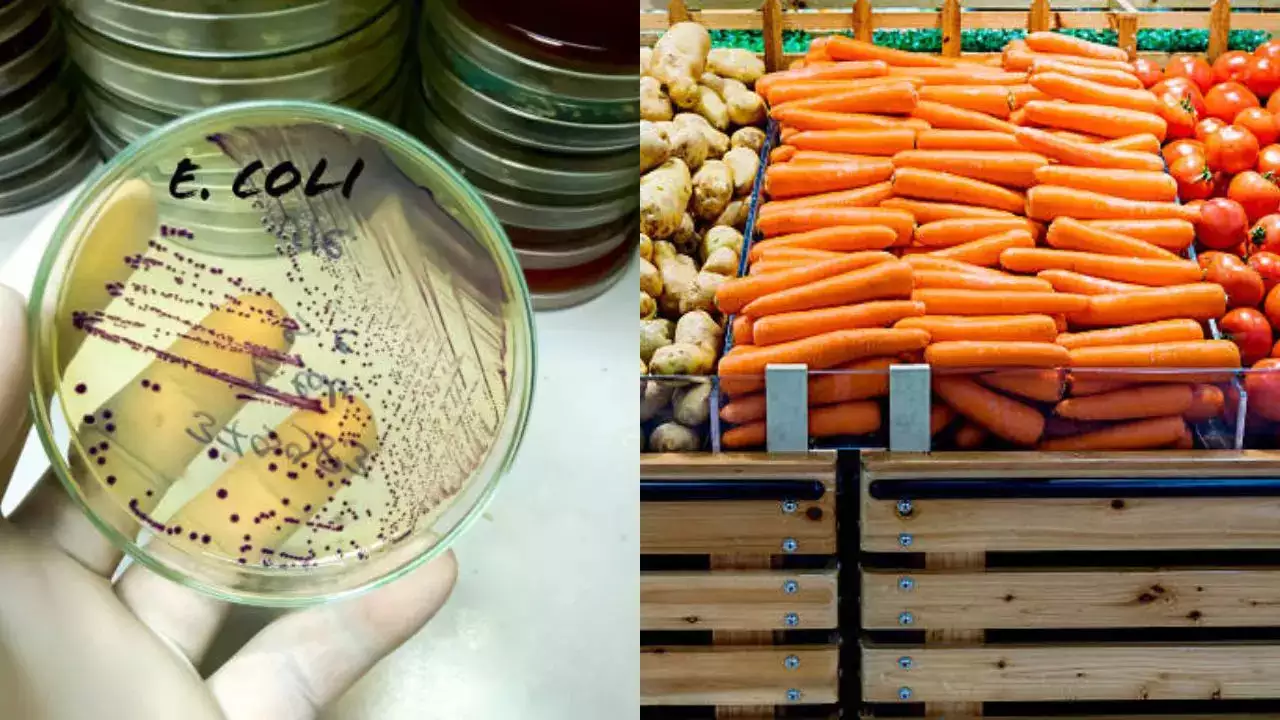
E. coli is a common bacteria found everywhere in the environment including in food, water, and intestines of people and animals
There have been multiple outbreaks of E.Coli bacteria affecting carrots to ground beef and many products recalled in connection with the pathogen, making dozens sick. While recall notices have been quick to urge customers to get rid of the potentially contaminated products, many also come with a reminder to cook meat at safe temperatures. However, the biggest question is does cooking kill E.Coli?
Many people are confused about whether it is safe to eat something that could be contaminated with bacteria, as long as it is cooked properly.
What is E. Coli?
According to the Centers for Disease Control and Prevention, Escherichia coli, or E. coli, is a common bacteria found everywhere in the environment including in food, water, and intestines of people and animals. Many kinds of E. coli are considered part of a healthy gut which aids in digestion as well.
Experts say even though most of these pathogens are harmless, some can cause serious illnesses and can even be fatal. Most people become infected with the dangerous strains of E. coli by eating contaminated food or drinking contaminated water, or by having contact with infected animals, environments, or other people.
You may usually develop symptoms of an infection within three to five days after drinking or eating foods contaminated with E. coli bacteria. Other strains can make you sick within hours. Sometimes, symptoms start up to 10 days after exposure.
According to doctors, common types of E. coli infection include gastrointestinal and urinary tract infections, and others include:
- Bloodstream infections
- Prostate infection
- Pelvic inflammatory disease
- Gallbladder infection
- Pneumonia
- Meningitis
What are the signs and symptoms of E.Coli infection?
A few signs and symptoms of an E.Coli infection include:
- Watery and bloody diarrhoea
- Stomach pains and cramps
- Loss of appetite
- Low-grade fever
- Pain or burning sensation when you pee
- An urgent need to pee frequently
- Cloudy, foul-smelling pee
Even though most of the symptoms of this infection are common, a specific form of the pathogen known as Shiga toxin-producing
E. coli can cause a serious health condition called hemolytic uremic syndrome, which leads to kidney failure or even death.
Does cooking kill E.Coli infection?
According to the Food and Drug Administration, restaurants have to cook ground beef to a temperature of 155°F for 17 seconds. But the CDC and US Department of Agriculture recommend that at home, you must cook ground beef to 160°F, as this temperature kills E. coli quickly.
For doing that, experts recommend using a food thermometer inserted into the centre of the meat to check the temperature. As far as vegetables are concerned, doctors say it is better to also cook them, even though most people enjoy veggies raw. Still, if you cook your vegetables, like carrots, to an internal temperature of 160°F, that should kill any dangerous bacteria.
According to experts, even though eating food can lower the risk of E. Coli, it is better to follow government instructions for recalls and discard the product to reduce the risk of an infection. It is also important to thoroughly clean anything the recalled food has come into contact with, including any food sitting nearby in the fridge.
Get Latest News Live on Times Now along with Breaking News and Top Headlines from Health and around the world.


